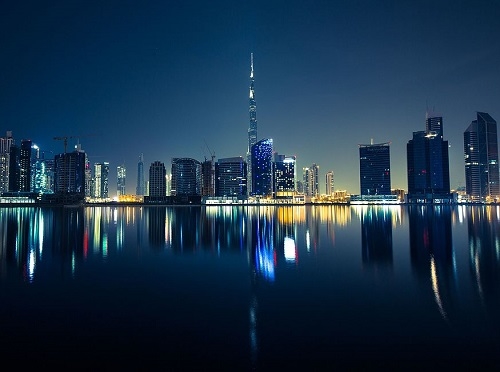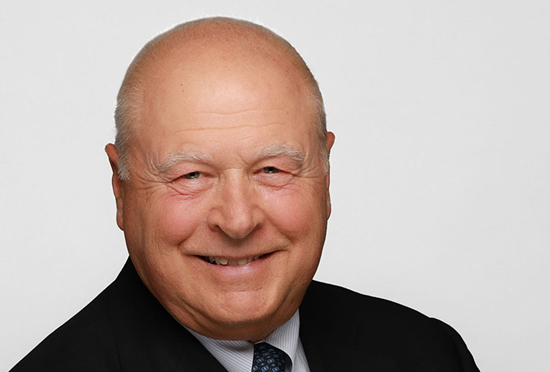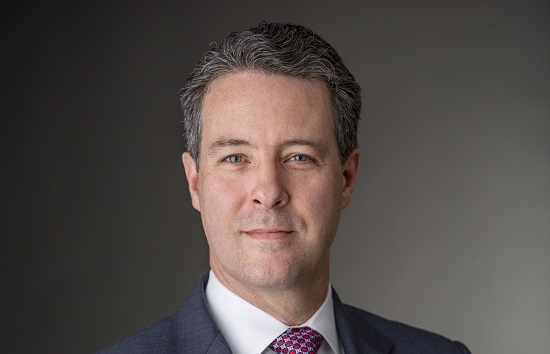DGCX to focus on GCC in 2018 – Les Male

The head of the Dubai Gold and Commodities Exchange (DGCX) said the group will focus on the Gulf region this year, noting that bridging the gap between the Islamic and conventional finance markets is one of the group's key priorities for 2018.
“For me and the DGCX in 2018, our focus will be much more regionally aligned,” explained Les Male, chief executive officer at DGCX, speaking to FOW on Wednesday on his plans for the exchange in 2018 after he took the helm from Gaurang Desai in the middle of February.
Global Islamic finance assets, according Thomson Reuters’s Islamic Finance Development Report 2017, are projected to grow from $2.63 trillion in 2018 to $3.78 trillion in 2022.
All countries in the Gulf Cooperation Council, bar Oman, are featured in the top 15 sovereign wealth funds and account for 24% of total funds found in the top 15.
With these growth figures in mind, DGCX – the largest exchange in the Gulf – launched the region’s first physically backed Sharia-compliant gold contract on March 29 this year, marking the group’s entry into the Islamic finance market.
“You will see more initiatives, products, services that are increasingly focused on the GCC region," Male said. "The launch of the Sharia Compliant Spot gold contract is a great example of that. The contract has got off to a very good start, we need to allow that time to bed in for a month or two before we could start to look at how we could extend that into other products here locally as well.”
According to data provided by DGCX, the exchange traded 84 kg of its new gold contract (worth $3.56 million) on its opening day last month.
Male added: “Dubai is very much at the centre of the Islamic finance world and financial institutions are the ones we’re really aiming this Sharia Compliant Spot gold contract at because they are somewhat sitting on the side-lines of the secondary market at the moment
“If it becomes a breakthrough product for them it could then act as gateway into a whole host of other products that we could look to offer. People who haven’t been able to trade on the markets before have told me they’ve started to open access routes and look at membership because of the new Sharia Compliant contract.”
Despite its name, Islamic finance does not pertain to specific religious products. Instead it refers to a suite of financial products which are underpinned by the principles of Sharia or Islamic law – giving Muslims the ability to invest savings and raise finance in a way that doesn’t compromise their ethical or religious beliefs.
Islamic finance is entirely interest free, meaning all financial business and activities must be free from any element of interest. Wealth can only be generated through legitimate trade and investment in assets, and must be used in a productive way.
According to Menacorp's Tariq Qaqish, the shortage of flow into Islamic compliant products is due to the lack of standardisation among countries and scholars. He argued in Islamic Finance News earlier this week that the products are not as competitive, diversified or cost efficient as they need to be.
Despite these challenges, Male said the region has “all the building blocks to build out Dubai’s derivatives market even further. We have a strong regulator, we have a time zone that covers the largest global liquidity pools and a solid and robust clearing house”.
“The financial institutions here though are somewhat largely locked out because of the lack of overlap between Islamic finance and the traditional investment markets. So we’re trying to bridge those two – this is a key message we want to get across for 2018.
“In terms of our services, I think the strength of our clearing house remains key for us. DCCC, which has got overseas recognition from the likes of European regulator Esma and the Monetary Authority of Singapore, and has had no defaults since inception, is a real asset for us. We’ll seek to leverage that. I would like to see us unify some of the CCP structures across the region – that’s certainly where I’d like to see the exchange heading.”
Indian data ban
Speaking on the decision by three of India’s largest exchanges –the National Stock Exchange, the Bombay Stock Exchange and the Metropolitan Stock Exchange – to end all data and licensing agreements with foreign counterparts, Male said DGCX has now taken measures to delist their Sensex products at the end of August.
“The Indian data ban is not a major impact for DGCX because we still have the strength of our native INR contract and Indian single stock futures – a suite that we extended last year,” he added. “A bigger impact is the uncertainty this move creates in the market places about what the next steps or future announcement could be.”
Found this useful?
Take a complimentary trial of the FOW Marketing Intelligence Platform – the comprehensive source of news and analysis across the buy- and sell- side.
Gain access to:
- A single source of in-depth news, insight and analysis across Asset Management, Securities Finance, Custody, Fund Services and Derivatives
- Our interactive database, optimized to enable you to summarise data and build graphs outlining market activity
- Exclusive whitepapers, supplements and industry analysis curated and published by Futures & Options World
- Breaking news, daily and weekly alerts on the markets most relevant to you



